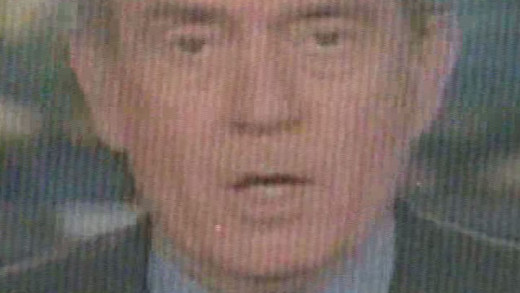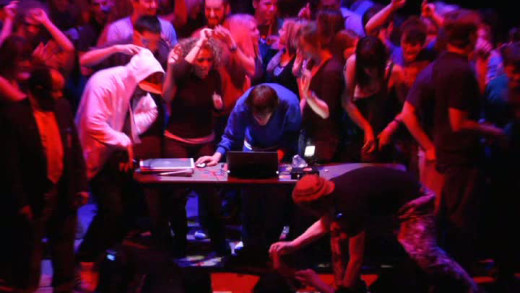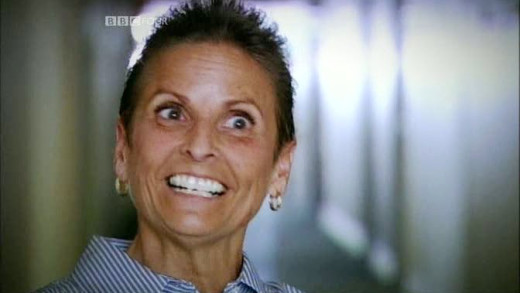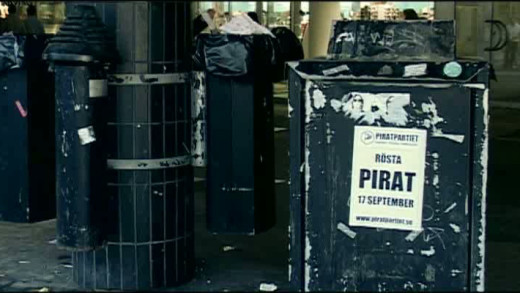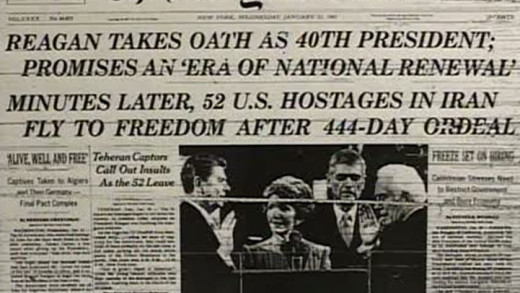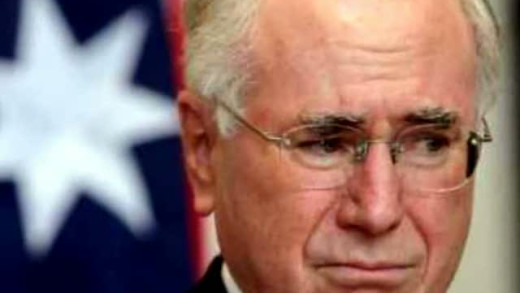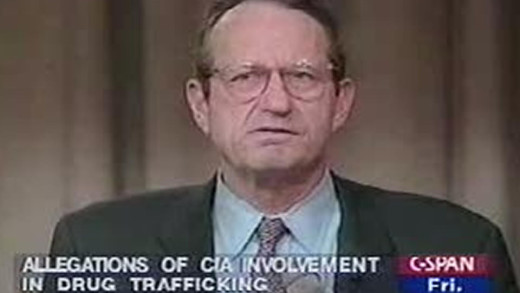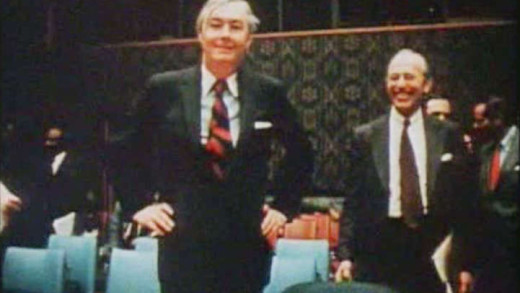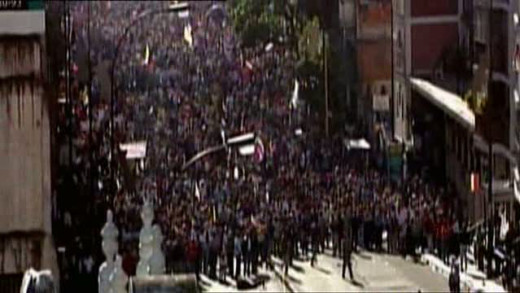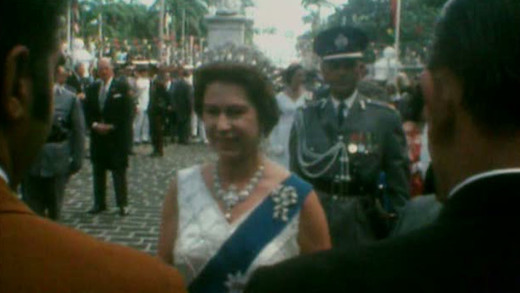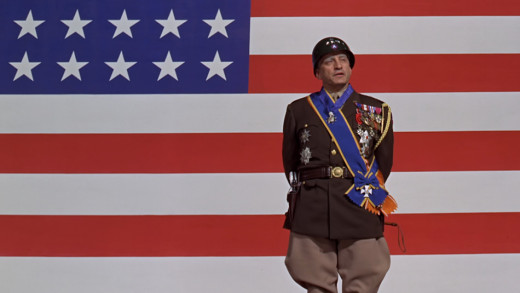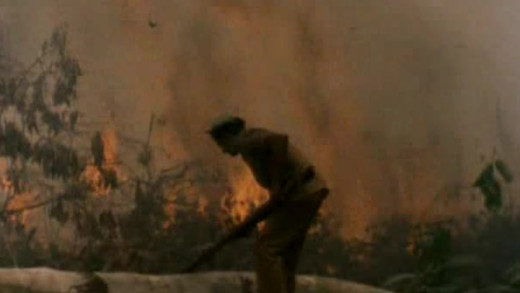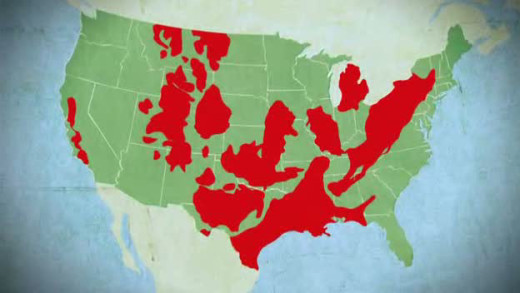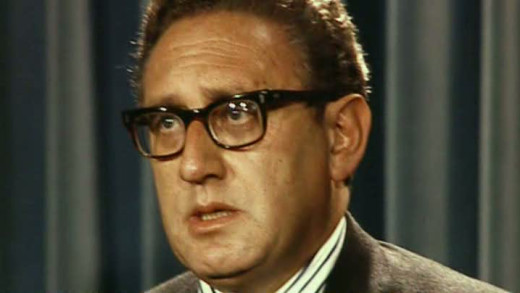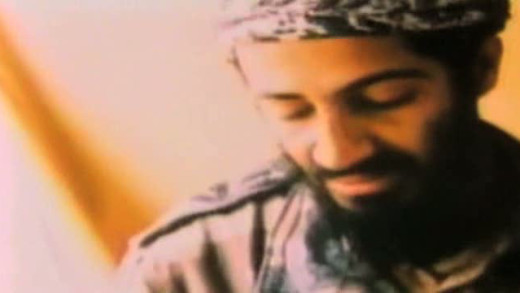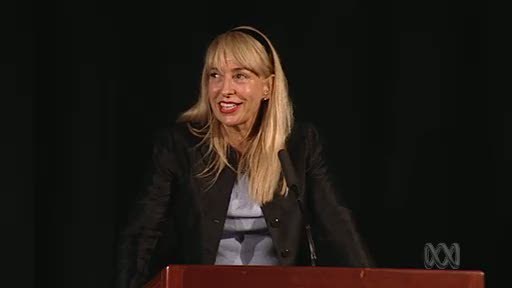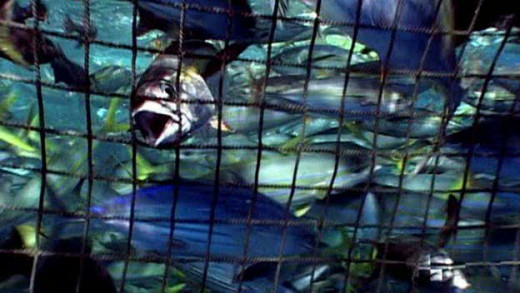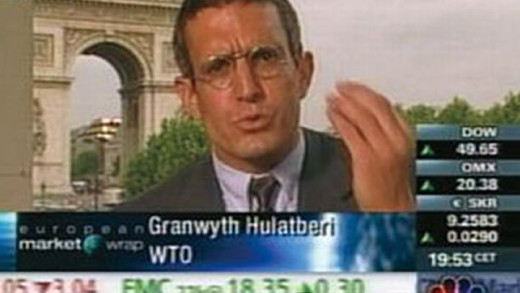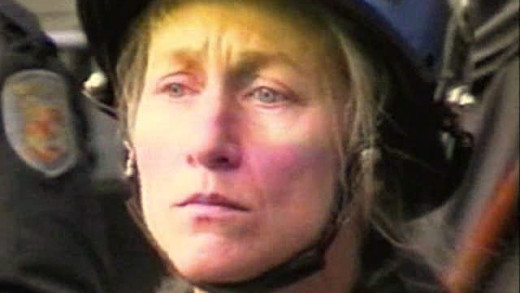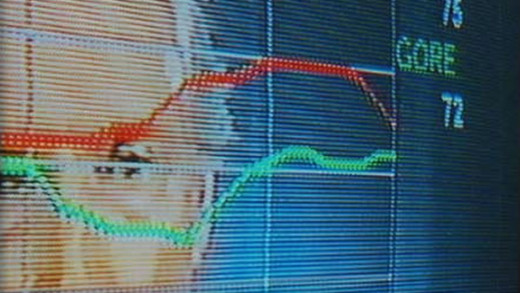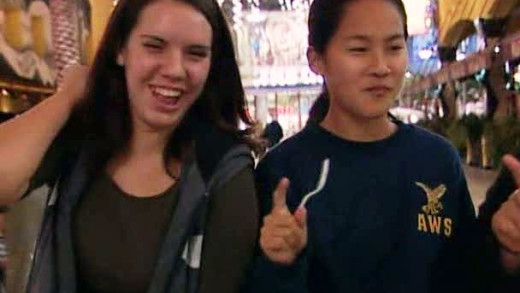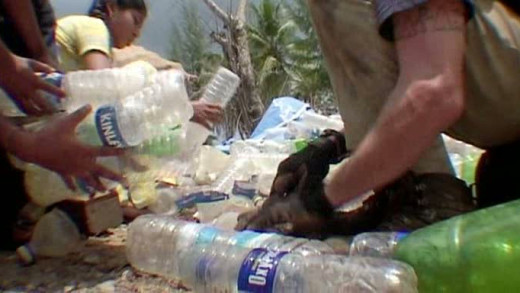Most people who know that the mainstream media manipulates stories, manufactures illusions, and exploits fears can realise that the reason is more than just bias or sloppy reporting. Behind The Big News shows the ideological agenda that originates outside the media that defines today's headlines, using examines of some of the biggest news stories in recent decades to illustrate how this agenda is rigorously promoted and protected.
Benny Hinn may be the most popular personality in the Christian world today. Thousands pack arenas to see him 'heal' the sick and the afflicted. Tens of thousands more watch his daily television program. Millions of dollars are donated every year to his ministry, none of which he says goes to him personally. But, what about those miracles? And where does all that money go?
Film-maker Brett Gaylor explores the issues of copyright in the information age, mashing up the media landscape of the 20th century and shattering the wall between users and producers. The film's central protagonist is Girl Talk—a mash-up musician topping the charts with his sample-based songs. But is Girl Talk a paragon of people power or the Pied Piper of piracy?
With its motto "Don't be evil," Google claims it has the best intentions. But there are also claims that Google is slowly turning into Big Brother, keeping track of users and continuously making decisions about the information it provides. Will Google turn out to be the new Library of Alexandria, serving as the great collector that brings the world's information to supposedly everyone, as it claims? Or is it more like a monopolistic, Ministry-Of-Truth-type corporation that challenges the very freedom of information by its stronghold over internet data?
The Intelligence Revolution is an extolling and largely non-critical account by advocate Michio Kaku who unflinchingly explains how artificial intelligence will "revolutionise homes, workplaces and lifestyles," and how virtual worlds will apparently become "so realistic" that they will "rival" the real physical world. Robots with "human-level intelligence" may finally become a reality according to Kaku, and in the ultimate stage of scientific mastery, the era of control imperative and domination, this culture will seek to merge human minds with so-called machine intelligence. Also, for the first time, we see how a severely depressed person can be turned into a happy person at the push of a button—all thanks to the convergence of neuroscience and microtechnology. What's wrong with such developments? And the larger culture such that technologies like this are being developed in the first place? How do such prospects impact the real physical world and the real physical lives of all of us?
Good Copy Bad Copy is a documentary about the current state of copyright and culture in the context of Internet, peer-to-peer file sharing and other technological advances. Featuring interviews with many people with various perspectives on copyright, including copyright lawyers, producers and artists, Good Copy Bad Copy documents that "creativity itself is on the line" and that a balance needs to be struck, or that there is a conflict, between protecting the right of those who own intellectual property and the rights of future generations to create...
Could a media system, controlled by a few global corporations with the ability to overwhelm all competing voices, be able to turn lies into truth? This documentary examines the relationship between the media, corporations, and government. In a country where the top 1% control 90% of the wealth, the film argues that the media system is nothing but a subsidiary of the corporate world. Have we entered an Orwellian world of doublespeak where outright lies can pass for the truth?
Fool Me Twice documents the Australian government's lies about the East Timor massacres, the cover-up of the Bali bombings (including the 1993 World Trade Centre attack) and subsequent anti-terror legislation forced through parliament by the Howard government. Laws that are still in effect today...
During a town hall meeting in central Los Angeles 1996, then CIA Director John Deutch made an appearance on a panel of government representatives to refute documented allegations that the CIA had sold drugs in Los Angeles in order to finance covert operations in Central America. Questions are put forward by many people, including author and investigative journalist Michael Ruppert who explains of documented evidence of direct CIA involvement in drug trafficking, making mention of covert operations...
On December 7, 1975 with the complicity of many Western governments including the US, the UK, and Australia, Indonesia secretly invaded the small nation of East Timor. In the intervening 18 years, an estimated 200,000 East Timorese or one third of the population, had been slaughtered by the Indonesian military -- using US and British planes to bombard the island, while Western defence ministers proclaimed ignorance. As John Pilger tapes an Australian diplomat admitting that East Timor was considered "expendable", no one watching the massacre can excuse the geopolitical machinations that led to this genocide...
Set in Latin America and the US, War on Democracy explores the historic and current relationship of Washington with countries such as Venezuela, Bolivia and Chile. John Pilger examines the role of Washington in America's manipulation of Latin America during the last 50 years leading up to the struggle by ordinary people to free themselves from poverty and racism...
In the 1960s and 70s, British governments conspiring with American officials, secretly tricked into leaving and then expelled, the entire population of the Chagos islands in the Indian Ocean as to make way for a major American military base. Indeed from Diego Garcia, American military planes have since bombed Afghanistan and Iraq. Stealing A Nation documents the story of the islanders who were dumped in the slums of Mauritius and in the words of the British officials who left a 'paper trail' of what the International Criminal Court now describes as 'a crime against humanity'...
The Pentagon has a long tradition of cooperation with Hollywood. Movie studios can save millions of dollars and achieve spectacular success by securing use of military stock footage, military equipment, weapons and manpower. But the catch is that Hollywood must alter scripts, whitewash history, censor and present their films to display war and the military in a favourable way. As a consequence, mainstream commercial films become the best and most powerful, widespread propaganda...
War By Other Means examines the policy of western banks making loans to so-called 'third world' countries, which are then unable to meet the crippling interest charges—debt used as a weapon. The film primarily analyses 'Structural Adjustment Programs,' which are proclaimed to enable countries to compete in the 'global economy,' but have the opposite effect of lowering wages which in turn further transfers the wealth from the poor to the rich.
Initially, the Americans claimed that they were not recording casualty figures. George Bush stated that America would do its "utmost to avoid civilian casualties". But now, details of the US Military themselves recording over 109,000 deaths have been released by Wikileaks -- over 66,000 civilian deaths; 176,000 civilians and others wounded. Iraq's Secret War Files reveals the true scale of civilian casualties, and examines evidence that after the "scandal" of Abu Ghraib, American soldiers continued to torture prisoners; and that US forces did not intervene in the torture and murder of detainees by Iraqi security services...
America's largest domestic natural gas drilling boom is in full swing and the Halliburton corporation claims it has refined a technique called 'hydraulic fracturing' that extracts natural gas in a "safe and environmentally friendly way". But upon examination, film-maker Josh Fox uncovers a trail of secrets, lies and first-hand evidence of intense water contamination and devastating environmental destruction...
The Trials of Henry Kissinger examines the evidence of war crimes by Henry Kissinger during his time as the United States "National Security Advisor" and later Secretary of State for President Nixon and President Ford. Acting in the role of the prosecution, journalist Christopher Hitchens presents solid evidence of Kissinger's complicity in a series of war crimes involving Indonesia, Bangladesh, Chile, Cyprus, East Timor and many other countries...
Fabled Enemies examines the US government's intelligence apparatus and its involvement in the events of September 11, 2001. Many questions surround the proceedings of that day. What were the precise actions of a shadow government operating in an underground bunker with Dick Cheney? Why did the FBI have their investigations into Bin Laden obstructed and shut down by George Bush before the attacks? Were the alledged hijackers trained at US military bases? Why was the military running exactly the same situation as 'war games' at exactly the same time of the attack?
Neuroscientist Professor Susan Greenfield says today's developing brain is being worryingly reshaped by excessive visual stimulation -- the effect of a culture driven by screens. Biotechnology, nanotechnology, even the internet are all impacting on our brains and could be heralding future generations with different abilities, agendas and even ways of thinking. Her prediction is that we might be standing on the brink of a cataclysmic mind-makeover never before seen...
Collapse is a documentary film exploring the theories, writings and life story of controversial author Michael Ruppert, a former Los Angeles police officer turned investigative reporter who has authored books on the events of the September 11 attacks, documented widespread drug trafficking and other secret operations by the CIA, and written on the issue of peak oil and other energy issues. Using archival footage interspersed as illustration, Collapse explores Ruppert's conclusions that unsustainable energy and financial policies have led to an ongoing collapse of modern industrial civilisation...
Advances in technology, global demand and the very essence of the commercial fishing industry itself means that whole species of wild fish are under threat. The species of fish that we eat today are predicted to be in a state of collapse by 2050 -- some are already extinct. Overfishing, or even more simply, the commercial fishing industry in general is to blame for this, along with celebrity chefs and 'exotic' restaurants; and mass consumer demand in today's world of globalisation. The End Of The Line documents the concerns and the processes behind commercial fishing and it's impact on the environment, the climate and the future existence of many species -- including our own...
The Yes Men are a culture-jamming activist-duo from the United States that are known for their impersonations of entities that they dislike as a form of protest. Using spoofed personas, they spread awareness of problematic social issues through the mainstream media. The two have also created and maintained fake websites, which have even led to numerous interviews, conferences, and TV invitations for their spoofed personas to espouse the truth about just how corporations and governmental organisations often act in dehumanising ways toward the unwitting public. In this film, we see how the two Yes Men take on the World Trade Organisation and confront the brutal realities of globalisation using satire and tactical media to get their message across, culture-jamming the corporate interest.
Using camera footage recorded by protesters at the scene of the World Trade Organisation riots in the United States during November 1999, Breaking The Spell documents the events of the time from the perspective of the activists, following the massive 'controversial' street protests and ensuing confrontations with police. Rather than attempting to cover every situation at the WTO, Breaking the Spell covers a few scenes in depth, filmed in the thick of the action, including footage that aired nationally on 60 Minutes...
Each year, legions of ad people, copywriters, market researchers, pollsters, consultants, and even linguists spend billions of dollars and millions of hours trying to determine how to persuade consumers what to buy, whom to trust, and what to think. Increasingly, these techniques are migrating to the high-stakes arena of politics, shaping policy and influencing how Americans choose their leaders. In The Persuaders, renowned media scholar Douglas Rushkoff explores how the cultures of marketing and advertising have come to influence not only what we buy, but also how we view ourselves and the world around us. The Persuaders draws on a range of experts and observers of the advertising and marketing world, to examine how, in the words of one on-camera commentator, “the principal of democracy yields to the practice of demography,” as highly customised messages are targeted to individuals using technology and fine-tuned social engineering techniques.
They spend their days sifting through reams of market research data. They conduct endless surveys and focus groups. They comb the streets, the schools and the malls, hot on the trail of the "next big thing" that will snare the attention of their prey -- a market segment worth an estimated $150 billion a year. They are the merchants of cool: creators and sellers of 'popular culture' who have made teenagers the hottest consumer demographic...
Imagine a home that heats itself, that provides its own water, electricity and spaces to grow food. One that needs no expensive technology, that recycles its own waste and that can be built anywhere, by anyone, out of garbage. Literally. Thirty years ago, architect Michael Reynolds imagined such a home and then set out to build. Today, there are strong communities of people living in these homes throughout the world, but all doesn't come without the constant resistance and hindrance from government and big business which are rightly threatened...
In the age of the brand, logos are everywhere. But why do some of the world's best-known brands find themselves at the end of spray paint cans and the targets of anti-corporate campaigns? No Logo, based on the best-selling book by Canadian journalist and activist Naomi Klein, reveals the reasons behind the backlash against the increasing economic and cultural reach of multinational companies. Analysing how brands like Nike, The Gap, and Tommy Hilfiger became revered symbols worldwide, Klein argues that globalisation is a process whereby corporations discovered that profits lay not in making products (outsourced to low-wage workers in developing countries), but in creating branded identities people adopt in their lifestyles. Using hundreds of media examples, No Logo shows how the commercial takeover of public space, the restriction of 'choice', and replacement of real jobs with temporary work -- the dynamics of corporate globalisation -- impact everyone, everywhere...
Paraguay's Painful GMO Harvest reports on a nationwide peasant uprising against farmers of genetically-modified soya who are seen as colonists partly responsible for the almost total deforestation of the eastern provinces...
